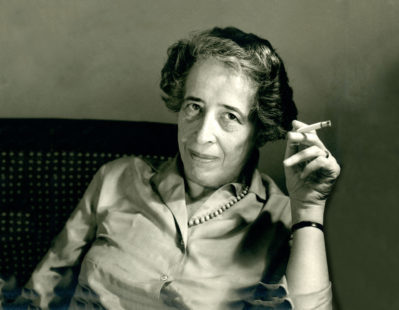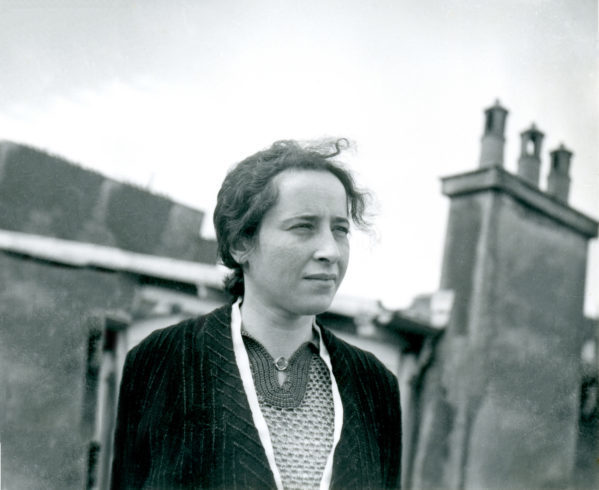REVIEW: New Hannah Arendt documentary explores her influence, her controversy

Vita Activa: The Spirit of Hanna Arendt, currently playing New York’s Film Forum and opening in Los Angeles April 29, is an expansive look at one of the most influential and controversial political theorists of the 20th century. Arendt wrote many works on the impact and origins of World War II and the Holocaust, but her depiction of Adolf Eichmann’s trial in Eichmann in Jerusalem received the most attention and ridicule from critics.
Ada Ushpiz’s documentary looks at Arendt’s philosophical coming of age, the controversial book and her legacy among modern-day scholars. The film, coupling interviews with archival footage, doesn’t take a definitive stance on the philosopher who coined the phrase “banality of evil.” Instead, Vita Activa is interested in offering a full portrait of this German-Jewish intellectual, through her words and the reactions to those words. A viewer’s preconceived notions about Arendt might not change by the documentary’s end; however, there is a clearer understanding of the context of the war, the subsequent trial and the publication of the book in question.
Important issues of plurality and refugee identity are explored, along with the origins and impact of the “banality of evil” understanding.
Ushpiz’s strongest choice for the documentary is letting the subject matter, namely philosophy and political theory, tell the story. The conversations and topics discussed in the film are high-minded and cerebral, so much so that some viewers may find themselves lost in the vocabulary and inferences. However, for those who listen a little deeper and attempt to understand, there are many topics explored: totalitarianism, philosophy, governance, politics, identity and perception to learn.

The main criticism of Arendt’s work deals with the phrasing “banality of evil” and how she portrayed Eichmann as “seemingly insignificant” in relation to his crime of mass murder, as Film Forum describes on its website. This characterization and explanation, plus her criticism of Jewish leaders and love affair with Professor Martin Heidegger, a Nazi supporter, caused much ire for her readers and other scholars. These choice of words and assertions continue to annoy many people.
Ushpiz doesn’t shy away from the controversy, but she does allow a fuller portrait to emerge on Arendt’s influence. The director interviews everyone from the theorist’s assistant to her friends to leading scholars from top research institutions around the world. They offer their thoughts less judgmentally and more academically, describing the words that Arendt chose and the inferences to be made by them. There are some who reinterpret the work, while others continue to be confounded.
The most interesting footage is of Arendt herself. A long, sit-down interview from 1964 German television shows the political theorist explaining her work, her personal history and her understanding of totalitarianism. The interview provides an unfettered look at this figure of 20th century thought.
Perhaps the reason this interview stands out so much is because it’s sandwiched between long recitations of philosophical principles and dense academic topics. That choice to present the story on philosophical and political terms is a good one, but sometimes the documentary works best when it offers its context through personal anecdotes and smaller stories.
The backdrop of the entire documentary is the Holocaust, a horrific episode in 20th-century history that saw the deaths of millions of Jewish residents across Europe. It was a multi-year atrocity that changed the thinking of so many theorists and intellectuals. Trying to comprehend the totality of what happened is a difficult endeavor, and Ushpiz’s documentary proves that point.
By John Soltes / Publisher / John@HollywoodSoapbox.com
- Vita Activa: The Spirit of Hannah Arendt
- In English, Hebrew, German and French with English subtitles
- 2016
- Directed by Ada Ushpiz
- Running time: 132 minutes
- Rating:





